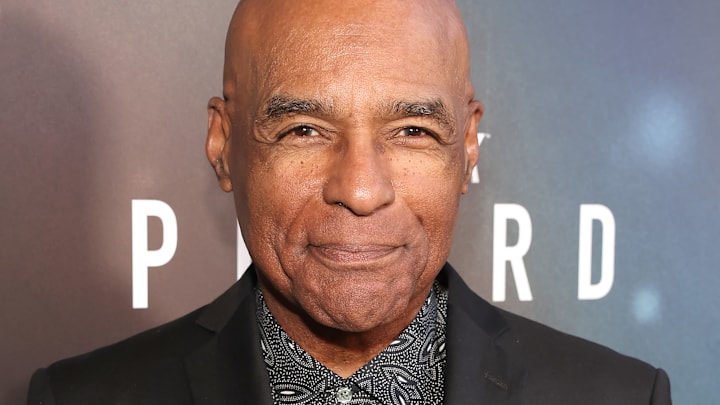Star Trek: The Next Generation closed out its run in the late spring, early summer of 1994. It's feature-full length film debut was months away in November, and a new spinoff show was entering it's second season with Avery Brooks at the helm. It as a budding show that featured mostly new characters like Quark, Benjamin Sisko, Odo and Kira Nerys. It also featured one character from The Next Generation in Miles O'Brien.
He wouldn't remain the only one for too long. By season 1996, season four was underway, and joining the crew of the space station was one of O'Brien's former colleagues, Worf, once again played by Michael Dorn.
Dorn came to the station as a way of giving the show some heft that some felt was missing. The inclusion worked well. Worf fit right in with the show and the direction they were going; all-out war. Having a character like Worf would give the denizens of Deep Space Nine a true combat-tested warrior to protect them. It made perfect sense.
Yet, had Dorn not gotten involved, things could've been wildly different. In an interview with TrekMovie.com, Dorn spoke about how the writers on DS9 tried to make him just one of the crew, saying;
""That's always been his charm. On 'Next Generation' they got it, and it was very understandable, and I didn't have to say too much about that. On 'Deep Space Nine,' I really had to corral them a lot, because if he's in on the joke, he becomes just another one of the characters. He doesn't stand out at all. And it was easy, because all they had to do was just write a line, and everybody else gets the joke, and [then] they make a joke, and they're funny. And Worf is just looking around going, 'Okay, I wasn't trying to be funny. I don't know why people are laughing.'""
Dorn was right to bring the writers under control with what they wanted him to do. The character of Worf is matter-of-fact, but not stupid. He's not a Marvel Cinematic Universe character. When Worf speaks, he speaks with a purpose and usually to give relevant and timely news to his colleagues. If that news is absurd (how to woo a woman) or outlandish (the day beheadings occur), then that's on the non-Klingons to deal with.
